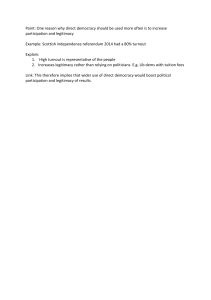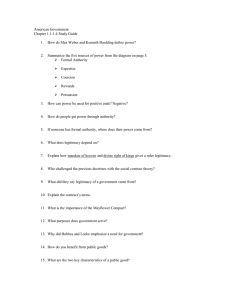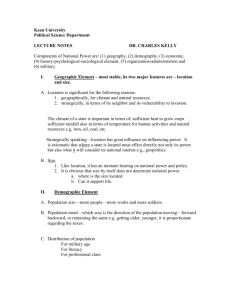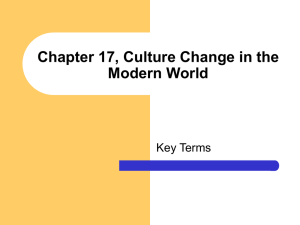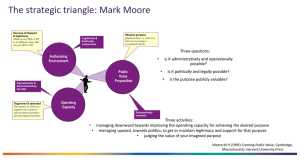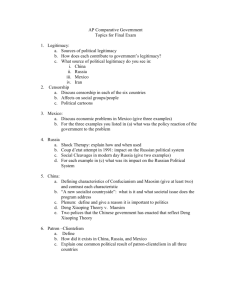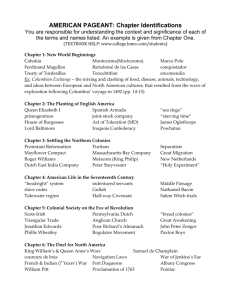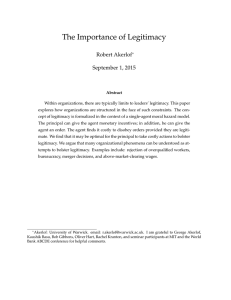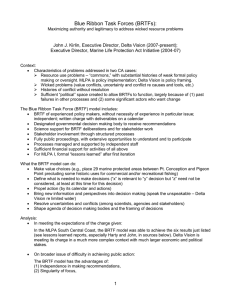Looking ahead
advertisement
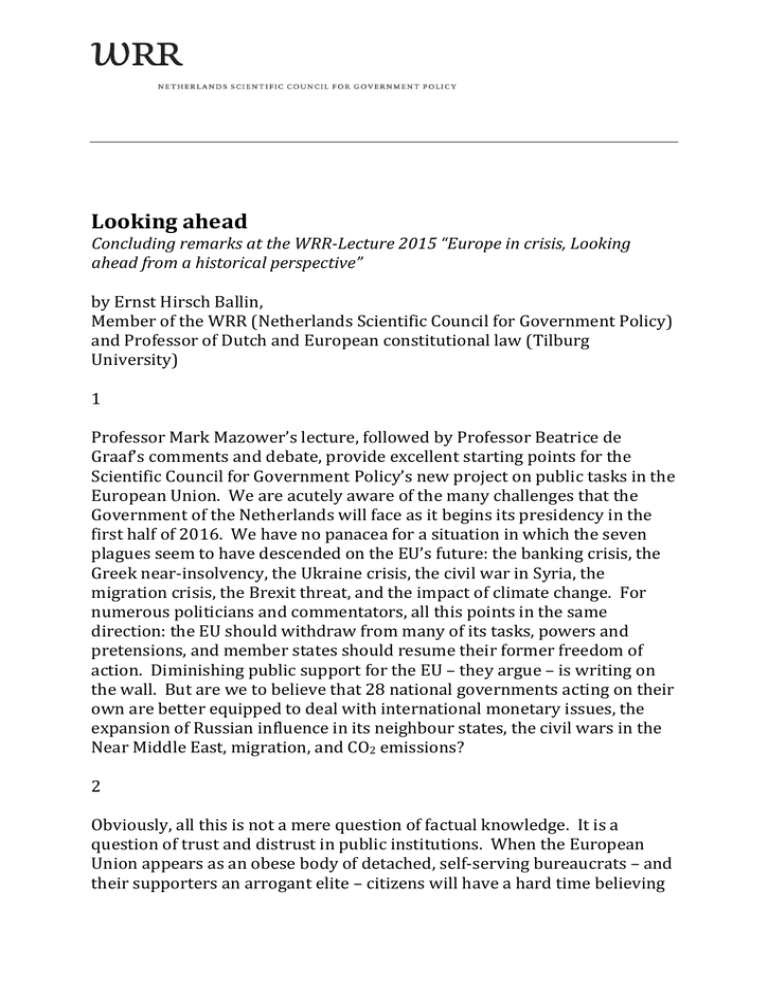
Looking ahead Concluding remarks at the WRR-Lecture 2015 “Europe in crisis, Looking ahead from a historical perspective” by Ernst Hirsch Ballin, Member of the WRR (Netherlands Scientific Council for Government Policy) and Professor of Dutch and European constitutional law (Tilburg University) 1 Professor Mark Mazower’s lecture, followed by Professor Beatrice de Graaf’s comments and debate, provide excellent starting points for the Scientific Council for Government Policy’s new project on public tasks in the European Union. We are acutely aware of the many challenges that the Government of the Netherlands will face as it begins its presidency in the first half of 2016. We have no panacea for a situation in which the seven plagues seem to have descended on the EU’s future: the banking crisis, the Greek near-insolvency, the Ukraine crisis, the civil war in Syria, the migration crisis, the Brexit threat, and the impact of climate change. For numerous politicians and commentators, all this points in the same direction: the EU should withdraw from many of its tasks, powers and pretensions, and member states should resume their former freedom of action. Diminishing public support for the EU – they argue – is writing on the wall. But are we to believe that 28 national governments acting on their own are better equipped to deal with international monetary issues, the expansion of Russian influence in its neighbour states, the civil wars in the Near Middle East, migration, and CO2 emissions? 2 Obviously, all this is not a mere question of factual knowledge. It is a question of trust and distrust in public institutions. When the European Union appears as an obese body of detached, self-serving bureaucrats – and their supporters an arrogant elite – citizens will have a hard time believing 2 that their best interests are being served. Politicians who appear to speak their language – not only in the linguistic sense, but the language of dissatisfaction and alienation – will easily win support. Is it possible to change the EU’s narrative in such a way that its policies and laws will more readily be recognized as serving the people? And will we be able to do this in a way that will not feed the sentiment that “we” are – in every member state and region – a collectivity that should protect itself against outsiders, rather a fortress (using Beatrice de Graaf’s metaphor) than a connecting open society? After all, we are European, whether we like it or not: to be Dutch means to be European. When we assess the European project, we find that policies and laws – and not its institutional structure – are at its core. But the history of the European Union has long been burdened by the idea that a new state – a federation of states like the USA – is its end goal. For some, this was – and perhaps is – the political ideal. For others, it is a nightmare. In this, Europhile and Europhobe politicians and opinion leaders see eye to eye. But from the viewpoint of the common interests it must serve, policies and laws are the essence of the European Union. In the ground-breaking judgments of the Court of Justice in 1962 and 1963, the Communities were seen as a new legal order in specific areas – areas of pooled sovereignty, and to this extent an actor in international relations, but not a new sovereign state in itself. 3 Mark Mazower has provided us with profound insights into the history of the European Union. Surely, the European Communities were based on a redirection of the sources of political legitimacy. Beneath the surface of state borders in our atlases, common interests required common policies and legislation. In the early years of the Communities, these interests literally lay under the surface of the states: the coal on which the mining and steel industries depended. This geological area – extending from Alsace and the Saar to the Ruhrgebiet, into South Limburg and the Borinage – was the bone of contention between France and Germany in three devastating wars. But this time, instead of administration through occupation, a High Authority (the predecessor of the European Commission) was created to administer this common area. It was common not because we decided to communitize it, but because of the realities on the ground, or rather under the ground. Step by step, other areas of substantive common interest were included in this communitization: agriculture, nuclear energy, competition, trade, labour, services. 3 The legitimacy of laws and policies was initially underpinned by political consensus on the principles of a regulated market economy, a fusion of the idea of the welfare state (sociale rechtsstaat) and Ordo-Liberalismus, tacitly accepted by Western Europe’s major political streams. But this consensus gradually unravelled in the last decade of the 20th century when controversial areas of policy – such as fiscal policy, migration, and the labour market – were introduced and the EU had to confront a new political climate: the Anglo-American inspired preference for a deregulated market economy, the diversification of political cultures and styles with rapid enlargement into Central and Eastern Europe, and geopolitical instability due to power vacuums around the EU, especially in the Caucasus region and the Mediterranean’s eastern and southern shores. 4 The demand of the day is to reconstruct democratic legitimacy in a way that truly meets the challenges of our times, the seven plagues with which I began. This requires focusing – in the first place – on tasks, and only secondly on institutions, in so far as they serve the common interest. This is the way in which we want to proceed with our project on public tasks in the European Union. We will not suggest needless changes to the institutional set-up. But a sober reassessment may include questions about our current dogmatic preference for uniform membership. Neither differentiation in EU tasks among member states nor EU territorial extension should be off limits to debate. The core issue is legitimacy – produced by a shared understanding of the common interest. National parliaments of course have their roles, but yellow and red cards are no longer viable responses to serious questions. Only green cards – for European or national policies, for their hybrids, or even for governance together with other actors – can serve the public interest. This, of course, is a question of substance – and of communicating about substance. Some europhobes are fond of reminding us that we will never attain a truly European political legitimacy because we don’t have a common European language. Poor Switzerland, with its four official languages! But this view is worse than a mistake. It is a falsification of European history – of all the interaction, trade, cultural exchange, and spreading of ideas thanks to the ability of people to understand and translate between different languages. The preamble of the EEC treaty, signed in 1957, expressed the desire to embark on an ever closer union of peoples. There was no official English text at the time. The word union is 4 the translation of “verbond”, “Zusammenschluß” in the Dutch and German texts, “union” with a small u in French. That was long before the European Union was created in1992. “In dem festen Willen, die Grundlagen fü r einen immer engeren Zusammenschluß der europä ischen Vö lker zu schaffen”, is a sentence about the relation between the peoples, not – at least not necessarily – about future treaties. It is a statement about the “spiritual plan” that Beatrice de Graaf brought to mind, but the meaning was lost in translation. Nevertheless, many politicians, especially in Britain but also in our country, believe that the preamble of the EU’s founding treaty obliges us to create an ever more powerful institutional structure called the European Union. They take the view that this sentence should be deleted – but why, actually? 5 Let us re-translate “verbond” and enunciate that the future of the European Union is not a question of feeding and extending powers as such, but readjusting policies and laws to the needs of the peoples of Europe in our time. European law and European policies are not an instrument for the extraction of benefits for “our” people – the Dutch, the British, the Polish – at the expense of other peoples, but an attempt to do justice to the basic fact that we share one continent as our place to live in dignity. Mark Mazower’s profound exploration of our European history reminds us of the darkness that aggressive nationalism has brought to our continent and its inhabitants. The violent reciprocity of acts of warfare must be replaced by the peaceful reciprocity of legal obligations and entitlements if we want to make Europe a better place.
